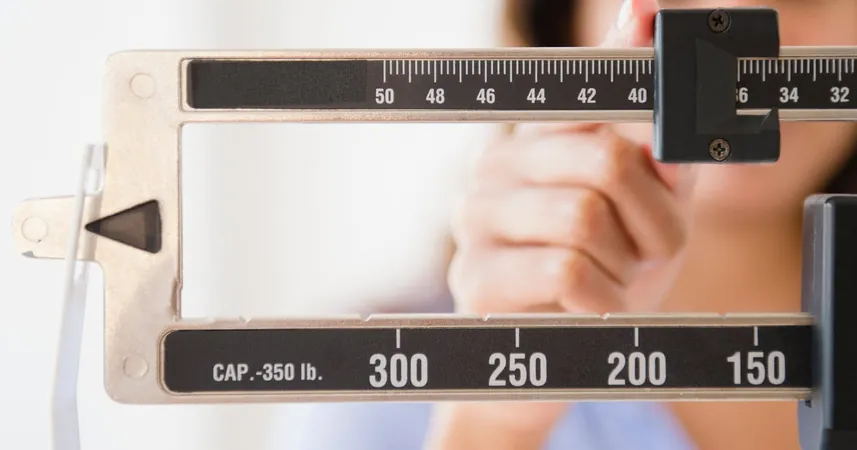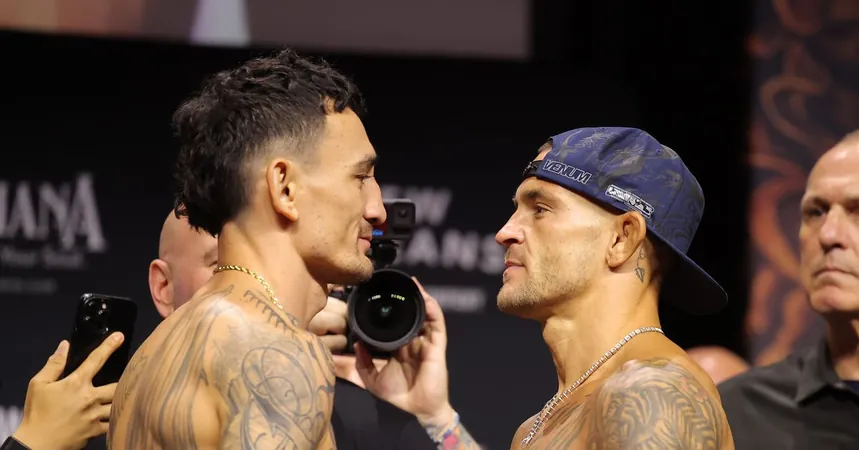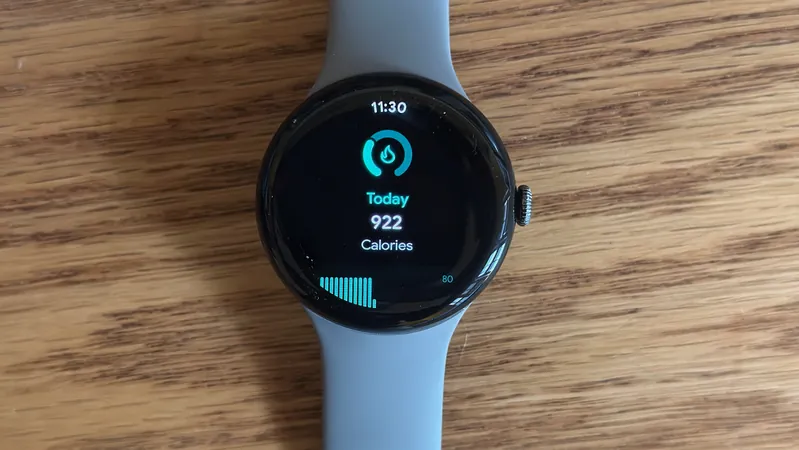
You Don't Have to Step on the Scale: The Surprising Truth About Weigh-Ins at the Doctor’s Office
2025-05-31
Author: Wai
Visiting the doctor can be a nerve-wracking experience, especially for those grappling with body image issues. The routine weigh-ins before consultations often add unnecessary stress, particularly for individuals who have battled eating disorders or feel self-conscious about their weight.
However, here’s a game-changing insight: You don’t always need to be weighed at the doctor’s office. Dr. Jennifer Gaudiani, a respected physician treating eating disorders in Denver, stresses that after the age of 18, unless specific medical needs necessitate it, most patients don’t need regular weigh-ins.
She points out exceptions for individuals with eating disorders, those experiencing unexplained weight loss, children to monitor growth, and pregnant women whose weight is essential for ensuring the baby's health. Yet, she confidently asserts that a staggering 90% of weight checks at medical facilities are unnecessary.
The ramifications? Patients dealing with anxiety about their weight often shy away from important health checkups altogether, fearing judgment and unsolicited advice on weight loss. This not only wastes time but can leave pressing health concerns unaddressed.
Dr. Gaudiani was thrilled to see 'Please Don’t Weigh Me' cards trending on social media—created by More-Love.org, these cards empower individuals to communicate their preferences discreetly and effectively. They state, 'Please don’t weigh me unless it’s (really) medically necessary,' and even request informed consent for weight checks.
Originally free, these cards are now available for $1 each, with bulk options for healthcare providers to encourage respectful discussions on body autonomy. Additionally, parents can obtain cards that advocate for their children, fostering constructive conversations about health and weight.
Ginny Jones, founder of More-Love.org, recognized the need for such tools after her own recovery journey. Initially sharing her preference not to be weighed, she found that many others were unaware that they could do the same. Over 200 healthcare providers have since ordered these cards, reflecting a growing awareness and acceptance of patient preferences.
Feedback from patients has been overwhelmingly positive, with many reporting renewed willingness to seek medical care upon learning about these cards. Stories of individuals who had delayed important healthcare appointments due to scale anxiety are increasingly common. One individual eloquently shared, 'Under no circumstances can I know my weight,' emphasizing the psychological toll such a number can exert.
For those who struggle with weigh-ins, including Gregory Walters, an educator who hasn’t weighed himself in over a decade, these cards give strength to advocate for oneself in medical settings. Walters recounted how facing the scale can reignite disordered behaviors, underscoring the importance of his recent strategies for handling weight discussions.
Navigating these encounters is challenging. But with confidence from tools like the cards, patients can express their needs clearly and avoid uncomfortable exchanges. Dr. Gaudiani recommends simply stating, 'I’d prefer not to be weighed today,' and if met with resistance, respectfully asserting one’s choices.
Critics of the movement argue that such practices might undermine public health initiatives around obesity. However, advocates like registered dietitian Shana Spence contend that weight stigma in healthcare can lead to worse outcomes and misdiagnoses.
Patients in larger bodies often face a barrage of biases that can overshadow genuine medical concerns. Research illustrates the need for healthcare providers to prioritize holistic health over numerical metrics.
Ultimately, the growing acceptance of these 'Please Don’t Weigh Me' cards is a pivotal step toward reclaiming body autonomy in medical spaces. The conversation around weight should not overshadow critical health discussions, and informed consent is a right every patient must claim.
As the landscape shifts, it’s essential for medical professionals to engage patients by honoring their preferences regarding weigh-ins and advocating for open, judgment-free health dialogues.



 Brasil (PT)
Brasil (PT)
 Canada (EN)
Canada (EN)
 Chile (ES)
Chile (ES)
 Česko (CS)
Česko (CS)
 대한민국 (KO)
대한민국 (KO)
 España (ES)
España (ES)
 France (FR)
France (FR)
 Hong Kong (EN)
Hong Kong (EN)
 Italia (IT)
Italia (IT)
 日本 (JA)
日本 (JA)
 Magyarország (HU)
Magyarország (HU)
 Norge (NO)
Norge (NO)
 Polska (PL)
Polska (PL)
 Schweiz (DE)
Schweiz (DE)
 Singapore (EN)
Singapore (EN)
 Sverige (SV)
Sverige (SV)
 Suomi (FI)
Suomi (FI)
 Türkiye (TR)
Türkiye (TR)
 الإمارات العربية المتحدة (AR)
الإمارات العربية المتحدة (AR)